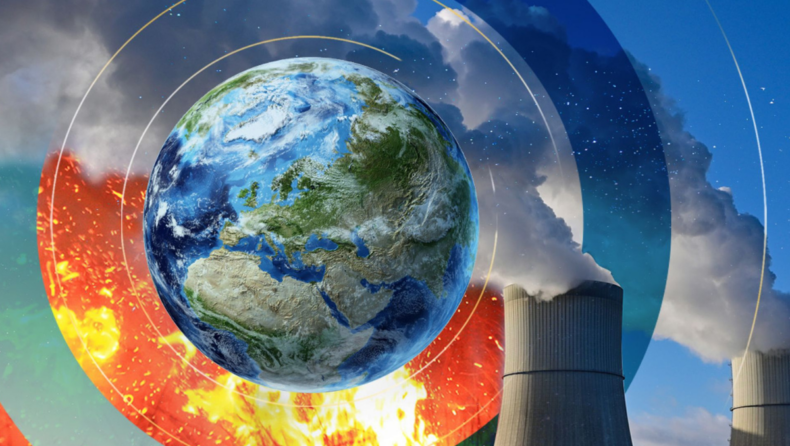NEW DELHI: This April, the average temperature in Delhi hovered at 40.2 degrees Celsius, making it the second-hottest April since 1951. During the last couple of weeks, temperatures in the nation’s capital Delhi reached up to 49 degrees Celsius as the heatwave gripped numerous regions of the country.
Approximately at the same time, flash floods swamped portions of northeast India, killing at least 25 people in Assam and uprooting thousands.
The widespread devastation caused by these and other climatic events has made it abundantly evident that India faces an uphill battle against climate change. In the next 50 years, sectors such as services, manufacturing, retail, tourism, construction, and transportation are projected to sustain the highest climate-related losses due to climate change.
According to a report by New Climate Economy, climate change also represents a $26 trillion global economic opportunity. In light of this situation, India needs a large number of scientists with a particular focus on climate hazards and sustainability. Here is the location of the next barrier.
India, which is especially susceptible to climate change, has a greater need for research and education in the field, but only a few thousand people are reportedly formally trained to deal with it, despite the fact that the government and corporations are willing to take action to mitigate the risks of climate change.

It all boils down to the number of courses offered in the subject, and sadly, climate studies and sustainability remain niche subjects taught at a small number of colleges and institutions in India.
Carbon Disclosure Project, a global NGO that collects environmental data voluntarily submitted by businesses, revealed in its annual India disclosure report published in March of this year that corporate climate governance has become an integral part of internal management for many Indian businesses.
Approximately 53 respondent organizations identified 77 acute physical risks indicating extreme weather events that represent a direct threat to the lives of individuals and businesses.
In the research, these climate-related financial risks were valued at 1,434 billion rupees. This only strengthens the demand for corporations to employ a larger number of sustainability-savvy personnel.
Sustainability involves both technical and interpersonal abilities. Companies are searching for candidates with technical expertise such as energy auditing, waste management, policy advocacy, and compliance.
As businesses have strengthened the integration of sustainability into their core functions, operations, and supply chain, there is a growing awareness of and demand for sustainability specialists. Over time, an increasing number of organizations will take a sustainability-driven approach to their fundamental operations.













